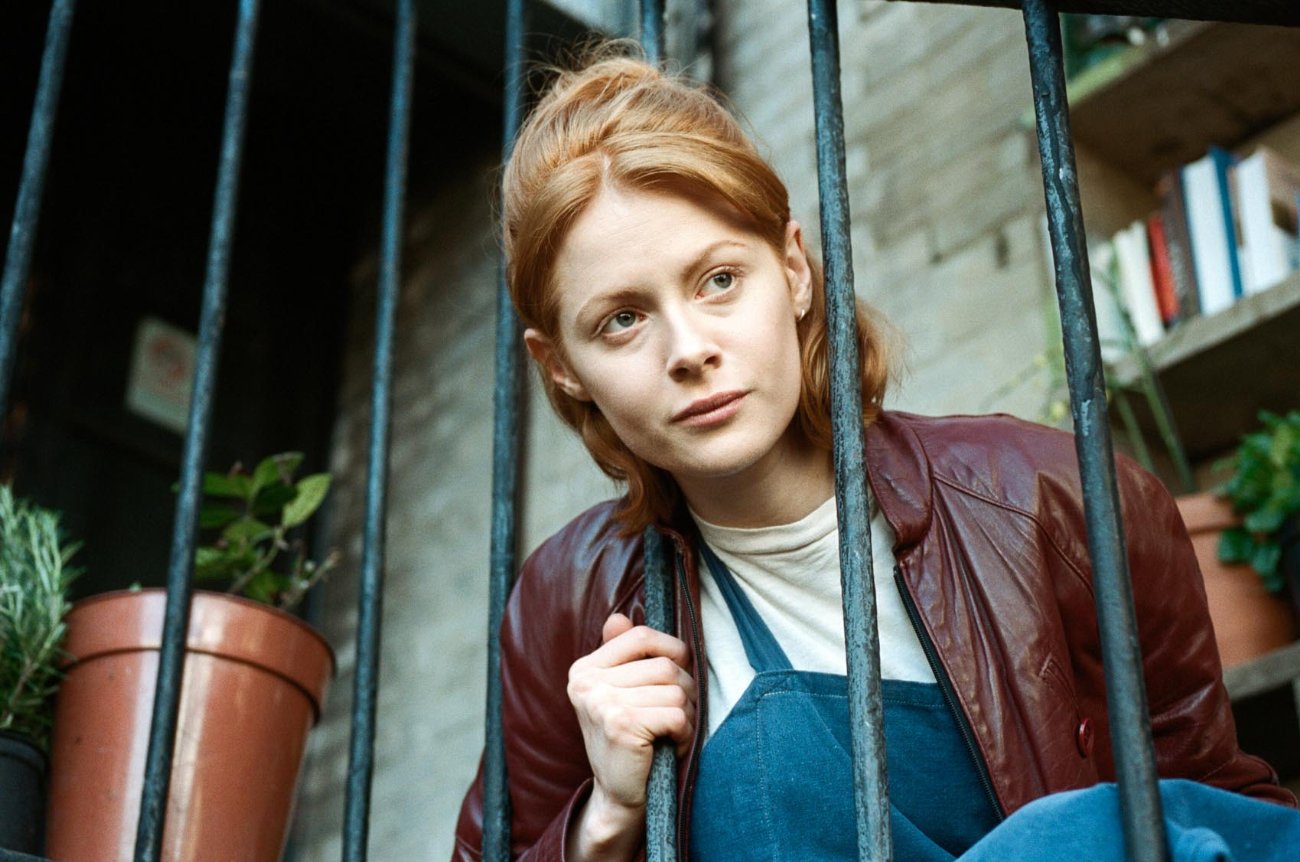Daphne (Emily Beecham) does not believe in love. She seems inordinately proud of that fact, announcing it boldly to anyone who will listen; and a surprising number of people do, appearing to take it as evidence of fierce independence of spirit and daring originality of thought. This, after all, is a 31-year-old Londoner who lives alone (in a rather good-sized house for one on an aspiring sous-chef’s salary but whatever), who giggles conspiratorially to herself while reading Slavoj Žižek and who picks up men in bars on a whim, before ditching them unceremoniously when they commit some unforgivable transgression like using the phrase “the lads” or being nice. We’re all for cinematic portraits of complex, unlikeable and morally questionable women, like the ones we know — or maybe are — in real life. In fact we like not liking our leading ladies, be they as mercurial as Anna Paquin‘s “Margaret” or as self-destructively acerbic as Charlize Theron in “Young Adult“; a female antihero is a precious thing.
But the woman at the center of Peter Mackie Burns‘ first feature, written by Nico Mensinger who also wrote Burns’ Berlin Golden Bear-winning short “Milk,” never attains that sort of dimensionality. It’s hampered by a script that mistakes one-note abrasiveness for complexity, as though the mere sight of a fine-boned middle-class redhead issuing salty, unprovoked tongue-lashings to a series of bafflingly forgiving men is enough to sustain our engagement for 90 minutes. You don’t have to like a character to care for them or be at least curious about what happens to them, but it’s very hard to invest in “Daphne” when Daphne is so unedifyingly invested in herself.

As committedly played by Beecham, who had a small role in “Hail, Caesar!” but is best known for her UK TV work, Daphne is a self-consciously prickly loner who drinks too much, is mean to her cancer-afflicted mother, and callously strings along the various men who are attracted to her brand of vacant DGAF. They include her married boss Joe (Tom Vaughan-Lawlor) who indulges her slipshod plating and prepping (Daphne also seems pretty bad at her job, even turned off by the elaborate dishes she concocts for herself at home) and helps her cultivate her palette with impromptu cheese-tasting sessions on the fire escape. Later, there’ll also be David (Nathaniel Martello-White) a kind-eyed bouncer who persists in his gentle suit even when Daphne, for her own amusement, gets him thrown out of a store for “pestering” her. The therapist she’s referred to for free following a traumatic incident is unendingly patient with her rudeness, and the delivery guy from the local take away is deeply solicitous and concerned for her wellbeing despite her underpaying or forgetting she’d ordered. Good news, narcissistic heterosexual thirtysomething women of London! Your city appears to be teeming with decent, attractive, eligible men just dying for a chance to be treated like crap by you.
The traumatic incident that ostensibly precipitates Daphne’s late-breaking character overhaul, is her witnessing a stabbing in a corner store. But whatever redemption she eventually finds is unsatisfying, again a matter of the film’s insistence that this irritating young woman serve as the focal point of our interest, to the exclusion of the sketched-in supporting characters. And so everything that happens in the film, even the things that happen to other people — the cancer that afflicts her mother (a sympathetic Geraldine James); the potentially fatal stabbing of the store owner — really happen to Daphne, to give her reason to muse at her own reaction, or lack thereof.

In terms of craft, we’re on more solid ground — DP Adam Scarth turns in a glossy vision of modern London that makes the most of Beecham’s bright red hair, set off against the gray of the streets, and delivers a memorable opening shot as Daphne’s pensive face is reflected in a multitude of little mirrors by an escalator, suggesting the multifaceted portrait never quite delivered. And Sam Beste‘s broody score does its best to lend depth and emotional resonance to scenes that could use a little more of both. But, live by the sword, die by the sword, and your mileage on a film called “Daphne” that features Daphne thinking and talking about Daphne in every single scene, will vary depending on how tolerable you find, you guessed it, Daphne. Maybe more compassionate viewers will rejoice in her Damascene conversion (which feels motivated mainly because we’re approaching the 80-minute mark) but others may find themselves struggling to give a damn.
There have been a lot of movies about rather undeserving, self-absorbed male characters and so in that respect “Daphne” could represent a kind of equal-opportunities irritant, but the “modern woman” spin doesn’t address that genre’s problems, it just dresses them up in different clothes. And however noble the intention to deliver a portrait of a woman on the verge and under the influence, the lacerating raw-nerve insight, psychological wisdom, and jagged riskiness of a John Cassavetes joint, or the arch, vibrant humanism of an Almodovar movie, are nowhere to be found. “Daphne” is an altogether blander proposition, and while it would be dishonest to suggest that the film does not sometimes happen across behavior or attitudes that feel recognizable to anyone who is, or ever has been a single, urban, professional woman, for the most part Daphne’s characterization is just too thin to withstand all this minute scrutiny. In fact, she seems like a creature who, far from needing a whole movie summoned into being just to fixate on her, would stand to benefit from a hefty dose of being ignored. [C]





